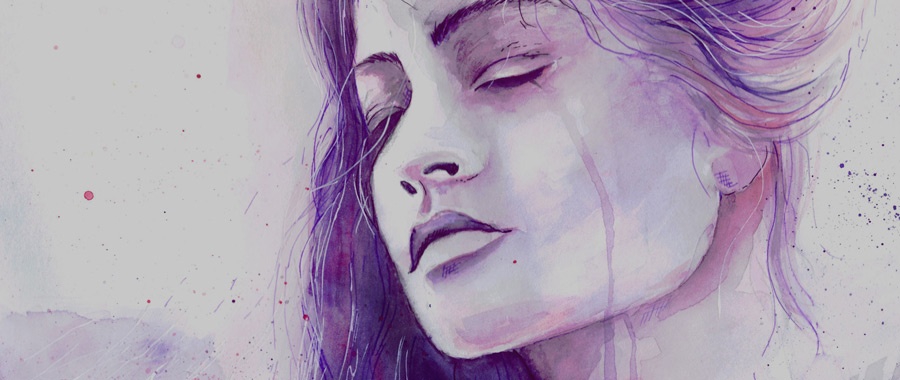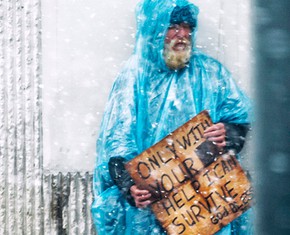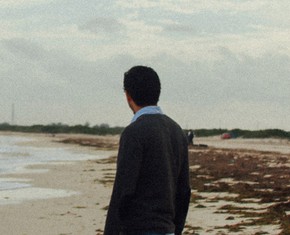The views expressed in our content reflect individual perspectives and do not represent the authoritative views of the Baha'i Faith.
Today, November 25, marks the International Day for the Elimination of Violence Against Women.
According to UNICEF, “worldwide, approximately 15 million adolescent girls between the ages of 15 and 19 have experienced forced sexual intercourse or sexual acts at some point in their lives.”
Baha’is condemn this abuse and all forms of sexual oppression:
The use of force by the physically strong … as a means of imposing one’s will and fulfilling one’s desires, is a flagrant transgression of the Baha’i Teachings. There can be no justification for anyone compelling another, through the use of force or through the threat of violence, to do that to which the other person is not inclined. …
The lack of spiritual values in society leads to a debasement of the attitudes which should govern the relationship between the sexes, with women being treated as no more than objects for sexual gratification and being denied the respect and courtesy to which all human beings are entitled. – The Universal House of Justice, Violence and Sexual Abuse of Women and Children, 24 January 1993.
A couple of months ago, I wrote an article about the objectification of women that largely focused on the negative effects that self-objectification has on a woman’s well-being. However, the objectification of women in our media and entertainment industry has a much more dangerous impact beyond the pressure we women internalize.
What does being constantly depicted in a sexualized manner do to society’s perception of our worth? How has the media and entertainment industry’s emphasis on our bodies as no more than decorative objects influenced how men see and treat us? Can we be treated like humans if we’re seen as objects?
The Baha’i Writings stress the need to be just and treat people with the utmost compassion:
The Kingdom of God is founded upon equity and justice, and also upon mercy, compassion, and kindness to every living soul. Strive ye then with all your heart to treat compassionately all humankind… – Abdu’l-Baha, Selections from the Writings of ‘Abdu’l-Baha, p. 158
So, why don’t all members of our human family empathize with female suffering, and help stop the global pandemic of violence against women?
Social psychologists have found that the more objectified women are, the less human people perceive them to be, which reduces the public’s empathy towards them. According to a recent study published in Cortex, conducted by Giorgia Silani and an international team of researchers at the University of Vienna, both men and women experienced a diminished capacity to feel and recognize the emotions of sexually objectified women.
This is frightening! A study at Wesleyan University found that when women appear in advertisements in men’s magazines, they are objectified 76% of the time. The media often makes women the target of sexist comments and behaviors, which encourages men to act this way in real life. In a series of studies reported in the Journal of Social Issues, researchers found that 94% of undergraduate women reported experiencing unwanted objectifying sexual comments and behaviors at least once over a semester. I, and most women, can relate to hearing catcalls and degrading remarks from men.
Sexual objectification is unfortunately a regular occurrence for many women, and it has led to a world where one in five women will be raped at some point in their lives.
At college, I never felt comfortable walking alone at night, knowing that my university had 70 cases of reported sexual misconduct in just one of the years that I attended – and those were only the reported cases. Worldwide, only 1 percent of girls who have been raped reach out for help. Why would they when, as we see in endless cases, people don’t believe women’s stories and male offenders get away with only a warning? Women who survive sexual assault and violence experience traumatic affects, such as depression, dissociation, PTSD, drug use, and suicidal thoughts or attempts.
The Baha’i teachings abhor this heinous force and violence:
In this, the cycle of Almighty God, violence and force, constraint and oppression, are one and all condemned. – Abdu’l-Baha, Selections from the Writings of Abdu’l-Baha, p. 149.
Baha’is work for the rights and freedoms of all people; and for the equality of the sexes, to empower women, speak up on their behalf, and protect them. Abdu’l-Baha said:
Until the reality of equality between man and woman is fully established and attained, the highest social development of mankind is not possible. – The Promulgation of Universal Peace, p. 72.
This mandate for equality requires putting an end to a “boys will be boys” attitude, and holding men who make derogatory, demeaning comments and who commit heinous crimes against women accountable. It also involves supporting organizations that combat violence against women, such as the Baha’i-inspired Tahirih Justice Center, as well as boycotting anything that makes light of sexual harassment and assault. It asks that we not only believe those women brave enough to come forward and tell the stories of their experiences, but that we understand it is an honor if a woman ever feels comfortable enough to share her pain and say, “Me too.”
















Comments
Sign in or create an account
Continue with Googleor